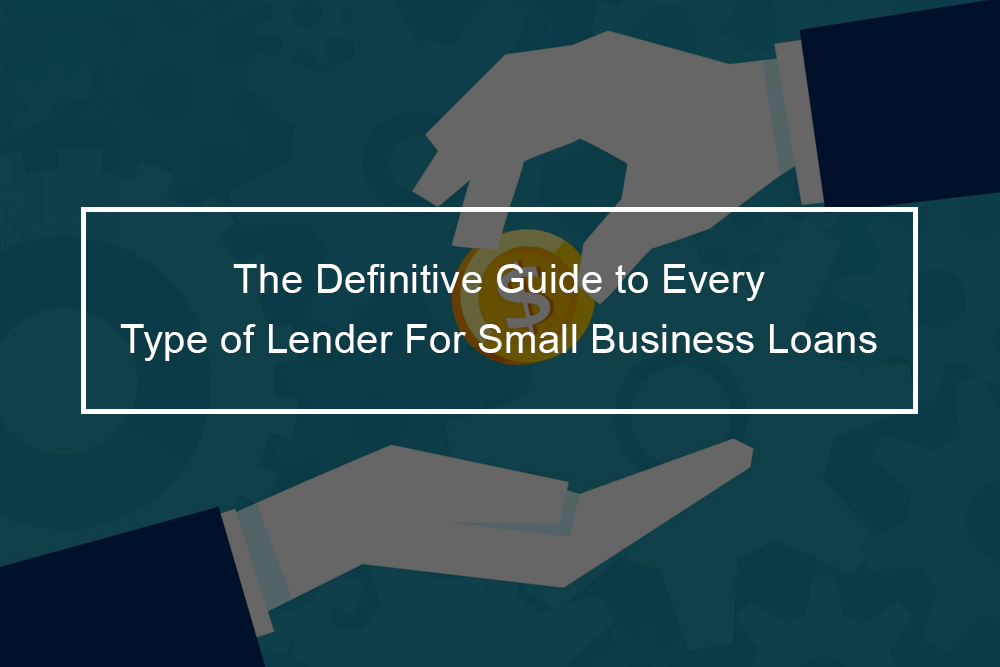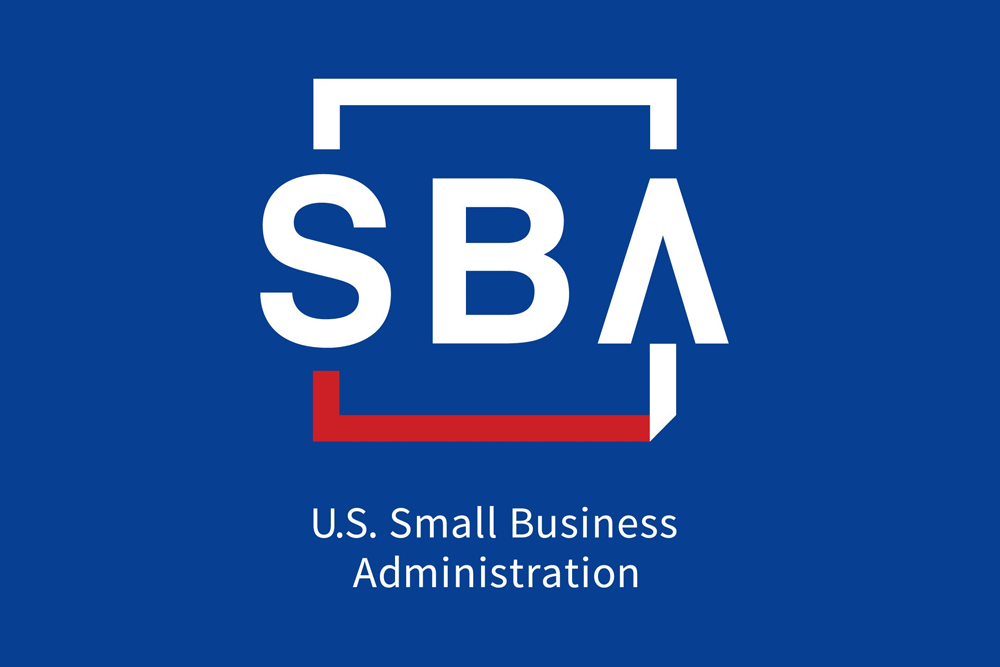Sometimes growing a small business requires borrowing money. Luckily, you have numerous loan sources from which to select. From traditional lenders, like large institutional banks, credit unions, and community banks to high-tech lending platforms like crowdfunding websites, you can find the right lender for your small business. It helps to be informed, despite where you choose to get funding for your business. Different types of lenders or funding sources will come with varying types of loans with differing requirements, from repayment terms to equity stakes, business revenues to owner credit scores, and more besides.
Main types of lenders and the various types of business loans you can obtain from them.
Credit unions and banks
Banks are the best way to get an SBA-backed loan. However, in most situations, banks loan money to large and well-established businesses. That is why such a large portion of small business loans do not get approved. However, if you have an existing relationship with a bank, you can begin your research here. Most banks generally lend in smaller amounts, and at more restrictive terms, when SBA funds do not support them. With banks, you can expect higher funding amounts, reasonable interest rates, and longer repayment terms.
On the downside, credit union and bank loans are difficult to obtain, and most applications are rejected, can take a longer time to fund and might restrict your use of the funds. Generally, consider the fact that all banks provide different advantages, whether it is customized repayment or personalized service. It is a wise move to shop around and find a bank that meets your specific needs. Generally, you should know that bankers are looking for companies with a soundtrack record and have great scores. A good business idea is not sufficient; it has to be backed up with a solid business plan. Start-up loans will also generally need a personal guarantee from the entrepreneurs.
Alternative lenders
Alternative lenders are simply any non-bank lenders who these days comprise quite a large number of sources. Tighter lending standards have driven the rise of alternative lending at credit unions and banks since the 2008 financial crisis. Today big banks approve only a quarter of business loan applications, and local credit unions and smaller banks approve less than half of applicants. However, approval rates with alternative lenders can be as high as ninety-percent.
Alternative lenders are often the fastest and most reliable funding option for small businesses. Usually, they offer more flexible terms compared to large national banks. That is because there are fewer regulations and fewer restrictions on the types of loans they can provide. Nonetheless, because approval rates are high, borrowers with poor credit histories or business finances might be assessed for high-interest rates.
With alternative lenders, you can expect: high approval rates, faster fund than business loans, fewer documentation requirements than bank loans, fewer restrictions on the use of funds, and suitable for newer business On the downside, the loans might come with higher interest rates, collateral is often needed for larger amounts, and some loans come with very short repayment schedules.
Alternative lenders loans are best for:
- Businesses that require capital quickly
- Business owners with poor credit histories
- Newer businesses (three-plus months in operation?)
Peer-to-peer (P2P) lenders
Online Peer-to-Peer lending connects a business owner with investors. Typically, the loan amount of your small business loan will often be divided among several investors in the P2P lending network. Peer to Peer financing poses a greater risk for lenders, so interests are typically higher. It is worth noting that crowdfunding and peer-to-peer financing are not the same things; however, they are often viewed the same.
Crowdfunding comes in various forms, including peer-to-peer lending- in general, crowdfunding merely is raising money through small amounts from large numbers of people. It is most commonly linked with platforms such as Indiegogo and Kickstarter, where in-development items are mostly pre-sold to backers. This makes it less lending or equity funding than merely a method to market opinions that have not been entirely produced yet.
Almost all businesses using crowdfunding successfully in this way are product-based businesses since backers on crowdfunding platforms have come to anticipate receiving a specific item or even set of items in exchange for their financial support.
Peer-to-peer lending can resemble other kinds of business loans, primarily when raised through one of the major peer-to-peer lending platforms. A business looking for peer-to-peer lending will require to offer documentation verifying their ability to repay the loan. These loans might process faster; however, remember they often come with higher interest rates.
With peer-to-peer lenders, you can expect the following benefits: Flexible repayment terms might be available, quick funding; sometimes they can help market your business or product On the downside, peer-to-peer lending might require assuming debts or giving up equity, might require more marketing ability than other types of lenders, and loans come with higher interest rates.
Government programs
State, Federal and local governments have programs designed to help the financing of new ventures and small businesses. The assistance is frequently in the form of a government guarantee of loan repayment from a conventional lender. The guarantee offers the lender repayment assurance for a loan to a business that might have limited assets available for collateral. The best-known sources are the USDA Rural Development programs and Business Administration.
When it comes to SBA, most United States entrepreneurs rightfully equate government funding with it, which dispenses several kinds of SBA loans. The most common SBA funding is the SBA 7(a) loan, a general-purpose loan that can be applied to cover significant business expenses. The SBA 504/CDC is a more restrictive kind of funding available to small businesses that pledge to create any economic growth in their communities.
The government does not like to take on risk, which makes SBA loans among the most challenging and time-consuming to obtain. If you get an SBA loan, your business may be in such good shape that it will not require the funding. With an SBA loan, you will reap the following benefits: large amounts available, long repayment terms (up to twenty-five years), and low-interest rates. On the downside, these loans are difficult to obtain (most applicants are rejected), take a long time to fund, extensive documentation requirements, and might restrict your use of the funds.
Commercial finance companies
Commercial finance companies might be considered when the business cannot secure financing from other commercial sources. These companies might be willing to rely on the collateral quality to repay the loan rather than the track record or profit projections of your business. If the business does not have substantial collateral or assets, a commercial finance company might be the best place to secure financing. Moreover, the cost of finance company money is often higher than other commercial lenders.
Family and friends
Family and friends are other potential lenders for small business loans. You generally do not have to fill out a lengthy application or argue the merits of your business’s financial statements. Most friends and family lend your business money because they care about you, and they need you to succeed, not because they see it as an investment opportunity. If you have family members or close friends with money to spare and have struck out with other lenders, you might consider approaching them for help. The best part is repayment terms might be quite flexible or simply underlined.
Nonetheless, these types of loans can come with higher risk if your business fails. Investing your own money- or that of family and friends- into your business will leave you (or them) with a lesser financial cushion to fall back on. Borrowing money from family and close friends to fund your business can also end friendships and strain familial relationships. Ensure you understand the potential fallout that can result from a worst-case scenario in which you cannot repay the loan.
Family and friends loans are suitable for:
- Businesses that can not get traditional funding
- Entrepreneurs with bad credit
- Startups and newer businesses
Nonprofit Economic Development Organizations
Community-based economic development organizations get money directly from the Small Business Administration to lend to small businesses to spur economic growth in certain geographical regions or specific groups. These organizations are generally, certified development companies, or CDCs, and work under a local mandate or a narrow national focus. A good example of an SBA lender in Texas is the North Texas Certified Development Corporation; the purpose of this nonprofit is to spur business growth in the state. This kind of lender generally partners with a commercial lender to complete the loan. The commercial lender makes part of the loan with an SBA guarantee, and the CDC finances the other part from SBA funds allocated to the organization.
Looking for business funding is never a fun experience; however, if you approach the journey as educated and prepared as possible, you will find you are better equipped to find the lender who is best suited for your unique case, and quickly get access to that capital your business requires to reach the next step.












